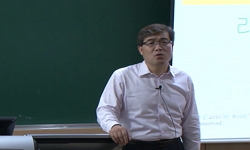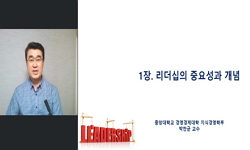리더십연구에서 맥락은 1960-70년대의 상황이론들에서 핵심적으로 다뤄졌으나, 미시적이고 제한적 범위에 머물렀다. 1980년대 이후, 맥락을 다루지 않은 변화중심의 리더십이론들(예, 카리스...
http://chineseinput.net/에서 pinyin(병음)방식으로 중국어를 변환할 수 있습니다.
변환된 중국어를 복사하여 사용하시면 됩니다.
- 中文 을 입력하시려면 zhongwen을 입력하시고 space를누르시면됩니다.
- 北京 을 입력하시려면 beijing을 입력하시고 space를 누르시면 됩니다.

리더십과 맥락(context):연구동향 및 향후 연구과제 = Leadership and Contexts: Research Trends & Future Research Directions
한글로보기https://www.riss.kr/link?id=A100576840
- 저자
- 발행기관
- 학술지명
- 권호사항
-
발행연도
2013
-
작성언어
-
-
주제어
맥락 ; 리더십 ; 리더십 상황 ; 리더십 효과 ; Context ; Leadership ; Leadership Situations ; Leadership Effectiveness
-
KDC
324
-
등재정보
KCI등재
-
자료형태
학술저널
-
수록면
23-48(26쪽)
- 제공처
-
0
상세조회 -
0
다운로드
부가정보
국문 초록 (Abstract)
리더십연구에서 맥락은 1960-70년대의 상황이론들에서 핵심적으로 다뤄졌으나, 미시적이고 제한적 범위에 머물렀다. 1980년대 이후, 맥락을 다루지 않은 변화중심의 리더십이론들(예, 카리스마리더십)이 리더십연구를 주도하면서 맥락변수는 잊혀 졌었다. 하지만 최근 맥락과 리더십의 관계에 대한 다양한 관점의 연구들이 나타나고 있다. 본 연구는 여러 분야에서 발표된 리더십 맥락 연구들을 체계적으로 분석하여 현 황을 알아보고 향후의 연구방향을 설정하는 것을 목적으로 하였다. 환경, 조직, 기술 그리고 시스템 등의 구조적 맥락 요소들과 리더십의 관계를 체계적으로 연구해야 하지만, 지금까지의 맥락연구들은 용어에 대한 명확한 정의조차 제시하지 못하고 있다. 본 연구에서는 연구주제에 '맥락(context)'이라는 용어를 포함한 50편의 리더십연구 논문들을 수집하여 이들의 주제별 유형을 여섯 가지로 분류하고 각 논문에서 사용된 맥락의 구성요소를 분석하였다. 분석결과에 입각하여, 모호하게 남아있던 ‘맥락 (context)'을 ’형식지로 표현할 수 있는 상황과 암묵적으로 이해할 수 있는 상황을 포 함한 일련의 리더십 영향요인’이라고 정의하였다. 아울러, 50편을 리뷰한 결과, 사회 상황, 조직상황, 상황의 특성, 산업/규모, 리더의 특성상황, 환경과 인식의 변화 등 일곱 가지 변수들이 맥락을 대표하는 변수로 사용되었다는 사실을 밝혔다. 하지만 아직까지 한국에서 리더십맥락에 대한 연구가 거의 없고, 맥락의 개념이 불명확하며, 맥락과 리더십의 다양한 관계가 구체화되어 있지 않고, 측정도구도 정립되어 있지 않다. 마지막으로 리더십 ‘맥락(context)'과 관련된 다양한 연구방향을 토의하였다.
다국어 초록 (Multilingual Abstract)
The current study collected 50 leadership articles that contain ‘context’ in the title, and categorized them into 6 groups before analyzing the contents of each article. After reviewing 50 articles, a definition of context has been suggested as in: “a series of situational variables that affect leadership outcomes, including situations being implicitly understood or being explicitly expressed”. Review of the collected articles also revealed that contextual variables such as social, organizational, industry/size, situational and leader’s characteristics, changes in environmental perceptions have represented the leadership context. Overall, there exist few studies of leadership context in Korea, the concept of context still remains ambiguous, the relationship between context and leadership has not been specified, and the measurement for context is not established. Finally, various future research directions for context have also been discussed.
Contexts in leadership research has been dealt with as a core concept by the situational leadership theorists during 1960-70’s, but only within a limited range. When change-oriented leadership theories such as charismatic leadership that put emphasi...
Contexts in leadership research has been dealt with as a core concept by the situational leadership theorists during 1960-70’s, but only within a limited range. When change-oriented leadership theories such as charismatic leadership that put emphasis on leaders’ direct impact on outcomes have taken the stage since the 1980’s, the variable context was neglected. Recently, however, diverse efforts are exerted to expand the context research into social, environmental, structural, and socio-economic areas. Thus the purpose of the present study was to set the stage for future research on context by analyzing the results of the existing studies. In brief, although it is necessary to delve into context variables such as environmental, organizational, technological, and systemic characteristics in relation to leadership, research on context so far is failing even to come up with clear definitions of the context itself.
The current study collected 50 leadership articles that contain ‘context’ in the title, and categorized them into 6 groups before analyzing the contents of each article. After reviewing 50 articles, a definition of context has been suggested as in: “a series of situational variables that affect leadership outcomes, including situations being implicitly understood or being explicitly expressed”. Review of the collected articles also revealed that contextual variables such as social, organizational, industry/size, situational and leader’s characteristics, changes in environmental perceptions have represented the leadership context. Overall, there exist few studies of leadership context in Korea, the concept of context still remains ambiguous, the relationship between context and leadership has not been specified, and the measurement for context is not established. Finally, various future research directions for context have also been discussed.
목차 (Table of Contents)
- I. 서 론
- II. 이론적 배경
- III. 맥락과 리더십 연구동향
- Ⅳ. 토의 및 향후과제
- I. 서 론
- II. 이론적 배경
- III. 맥락과 리더십 연구동향
- Ⅳ. 토의 및 향후과제
동일학술지(권/호) 다른 논문
-
한국형 리더십 연구의 새로운 지평:<박태준 사상, 미래를 열다>에 대한 서평
- 대한리더십학회
- 최경춘
- 2013
- KCI등재
-
이슈리더십:주의자원(Attention Resource)의 관점
- 대한리더십학회
- 백기복
- 2013
- KCI등재
-
이슈 리더십에서 개인 가치의 역할 :연구모형과 향후 연구방향
- 대한리더십학회
- 백규선
- 2013
- KCI등재
-
- 대한리더십학회
- 심선아
- 2013
- KCI등재




 스콜라
스콜라






